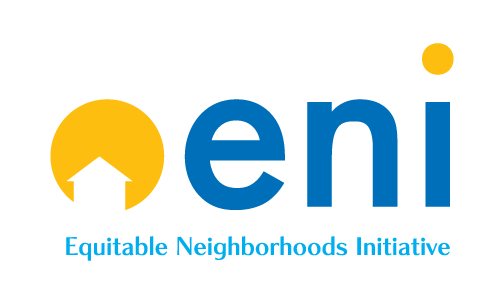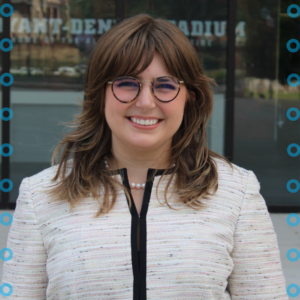March 26, 2024
– By Braden Hopkins –
We hold a lot of misconceptions about people with developmental disabilities. ENI Goodwater Community Liaison Tracy Burton founded the Central Alabama Reach Out Center to help solve this problem. To help us understand the importance of employment opportunities for people with disabilities, Mr. Burton joined ENI for an interview about his work.
The Centers for Disease Control and Prevention explain that developmental disabilities are a group of conditions that can impact physical health, learning, language, and behavior. Conditions begin in early childhood and usually last throughout a person’s life. These conditions can affect day-to-day functioning. Yet, adults with developmental disabilities can do many things. They can attend school, work, and start a family. The Central Alabama Reach Out Center has a mission to help people with disabilities reach these milestones. The center partners with the Alabama Department of Career Rehabilitation to provide employment opportunities and personal growth workshops to adults in need. People often make broad generalizations about what qualifies as a disability. But Tracy Burton explains there are many different types of disabilities.
Tracy Burton started the Central Alabama Reach Out Center (CAROC) in 2018. CAROC offers programs and classes to help residents improve their quality of life. Classes help improve work ethic, job retention, personal hygiene, and driver’s education. Mr. Burton says he is most fulfilled when previous participants reconnect. He loves hearing updates about their new jobs and independence. To access services through CAROC, visit the Alabama Department of Rehabilitation website.
Major Employment Challenges Faced by Individuals with Developmental Disabilities
- Transportation
Rural and suburban areas can lack accessible public transportation. Often, there are no public bus routes. Even walking can be difficult with limited sidewalks and long distances. In rural areas, it can sometimes be impossible to call a cab or book an Uber. People with developmental disabilities are often not able to receive their driver’s licenses. This makes transportation in areas without public transportation extremely difficult. According to the U.S. Bureau of Labor Statistics, 10.3% of individuals with a disability who were facing unemployment listed transportation as a major barrier. Leaders at CAROC and other programs across the state are working to decrease this transportation gap. - Realistic Goals
Mr. Burton highlights the challenges faced by individuals with developmental disabilities who are often not provided with the necessary resources and support to pursue their career goals realistically. In high school, adults encourage students to aspire toward careers like doctors, lawyers, or teachers. Yet students are rarely given the guidance needed to achieve these aspirations. At CAROC, participants work with counselors to discover their strengths and interests. CAROC equips participants with the information needed to pursue their chosen career path. - Stigma
Stigma involves negative social attitudes. It can lead to social disproval and unfair discrimination and exclusion. People with developmental disabilities often face stigma for things they have no control over. Tracy Burton further relates that in rural Alabama, people are misinformed about what qualifies as a disability. Many employers believe disabilities are only physical. Some place blame on people with developmental disabilities. This is not true. Individuals with disabilities face many conditions that impact physical and mental well-being. Mr. Burton explains that people facing incarceration in Alabama often exit prison with disabilities such as post-traumatic stress disorder. This can cause them to face stigma against their incarceration and disability status. Stigma against developmental disabilities can make it hard for individuals to secure employment. Services such as CAROC aim to reduce stigma against people with disabilities. Helping people with disabilities fight stigma can increase community acceptance and belonging. - Financial Stability
Without accessible employment opportunities, people with disabilities may have a hard time making ends meet. If a person has a disability, they may receive financial help from the government. Mr. Burton explains that these payments only go so far. After someone pays their rent, buys their groceries, and covers other essentials, there is not much, if any, money left. Living check to check can be stressful. Additionally, financial instability can make it difficult for a person to pursue employment. Research from the 2022 Journal of Economic Psychology finds that stressors such as economic hardship can impact the quality of job searching. Resources like the CAROC aim to prepare individuals for a successful job search, regardless of their hardships.
CAROC’s website offers more information about programs and resources available. People with developmental disabilities can lead independent and financially stable lives. They might just need extra help from leaders like Tracy Burton.
Alabama has other support for people with a disability who are navigating the employment system. In the video below, Ms. Crystal Smith, Outreach Coordinator for Auburn University’s College of Education, overviews resources and services in Alabama for individuals with disabilities.
This Developmental Disabilities Awareness Month, the Equitable Neighborhoods Initiative is proud to connect individuals to resources to improve health equity across the state.


